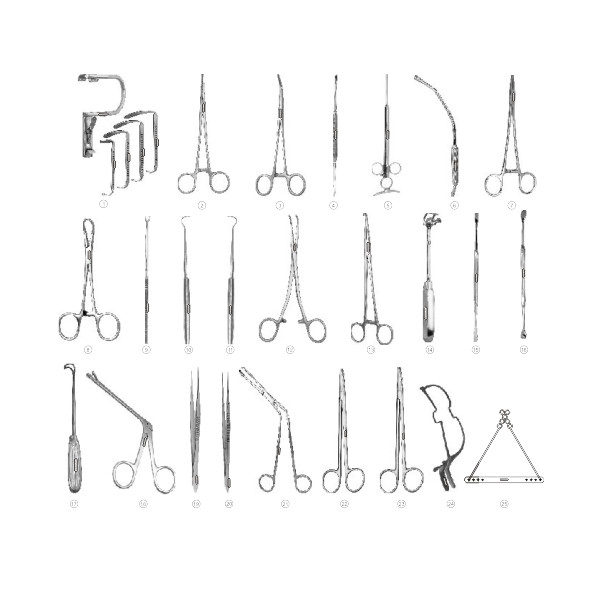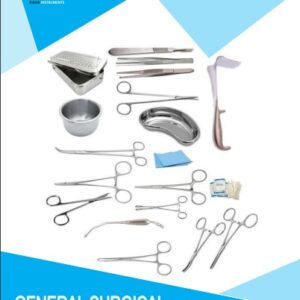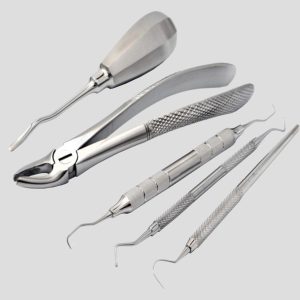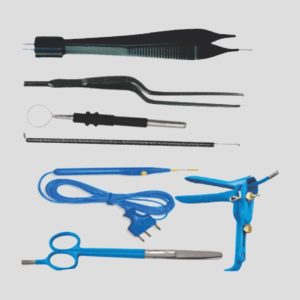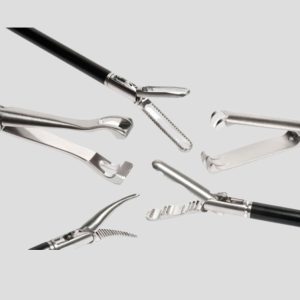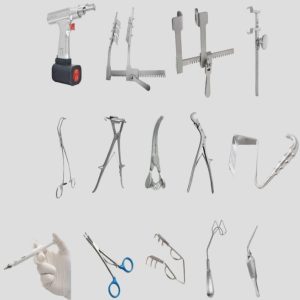Surgical technologist is excellent if you are detail-oriented, have excellent judgment, and can stay calm under pressure. If you have ever thought about working in healthcare, this could be your ideal fit. Helping surgeons and ensuring surgeries go well are two of your primary responsibilities as a surgical technician. Acquiring expert knowledge of the wide range of surgical tools and equipment is crucial to this position. This blog article will discuss the fundamental abilities needed to operate surgical instruments Pakistan, delving into their fascinating universe.
What common surgical instruments Pakistan do surgeons use?
- Scalpels and blades
Among the most basic instruments available to a surgical technician is a scalpel. The patient’s skin and tissues are incited with these tiny, razor-sharp knives. Surgical technicians must be skilled in keeping their sharpness and precisely and carefully handling scalpels. Safety comes first. One of the most important skills for avoiding mishaps is ensuring the blade is stable on the handle.
- Forcep and clamp tools
Used to grip tissues, grab things, or control bleeding during surgery, forceps and clamps come in many forms and sizes. Whether it’s a delicate tissue or a small blood vessel, surgical technicians must be adept at choosing suitable forceps or clamps. The success of the surgery depends on your capacity to use these tools efficiently.
- Surgical scissors
Perfect cutting of tissues, sutures, and other materials is the goal behind surgical scissors. Among the several types of these scissors are sharp-ended and blunt-ended ones. Surgical personnel must be experts in determining the appropriate scissors for every case since selecting the wrong one could cause problems during operation.
- Needle holders and suturing tools
Many surgical operations involve suturing; hence, surgical technicians are important in ensuring wounds are closed correctly. Needles are held and manipulated throughout suturing using needle holders and suturing tools. To give the patient the greatest possible outcome, surgical technicians must be steady in their hands and adept in suturing methods.
- Suturing tools, thread, and needles
Different energy-based surgical instruments Sialkot are available to cut and coagulate tissues in contemporary surgical environments. Among these instruments are ultrasonic ones, lasers, and electrosurgical units. Besides knowing the possible hazards of their use, surgical technicians must be competent in securely setting up and running these instruments.
Infection control tools and sterilization
Maintaining some sterile surgical surroundings is crucial. Setting up the sterilizing equipment and preserving the sterile field during the surgery falls to surgical technologists. This covers sterilizing indicators, pouches, autoclaves, and sterilizing agents. Prevention of infections and guarantee of patient safety depends on proper handling and recording of sanitized tools.
- Imaging tools and endoscopes
Operating with endoscopes and other imaging tools, surgical technicians help the surgical team navigate less invasive operations visually. Mastery of these cutting-edge technologies is crucial since they enable exact and less intrusive procedures.
- Monitoring tools and anaesthesia machines
Besides tools, surgical technicians must be conversant with monitoring devices and anaesthesia machines. They are vital for helping anaesthesiologists and guaranteeing patients are safely sedated and watched after during surgery. The use of these tools have been common in almost every operation you might notice in a medical centre.
- Robotic-assisted surgical systems
Operating rooms have used robot-assisted surgical devices rather frequently in recent years. During surgery, these devices enable more accuracy and control. Operating and troubleshooting these systems calls for a special set of abilities than standard surgery. Hence, surgical staff must be trained in both operating and troubleshooting.
What is the role of a surgical technician?
Now, let’s consider the function of a surgical expert after gaining insight into surgical tools and equipment. Preparing the operating room, guaranteeing the sterility of the surroundings, and giving surgeons the tools and supplies they require during surgery fall to these medical experts. They are also known as surgical technologists. Maintaining patient safety and supporting the surgical team depend much on their accuracy and meticulous attention to detail.
Surgical technicians are indispensable in many different surgical treatments, from small operations to complicated, life-saving operations. Aspirant surgical technicians must complete particular training to become experts in the use of a vast range of tools and equipment.
Importance of having certification and training
Learning to be a competent surgical technician requires official education and training. In two years, most surgical technologists finish a post-secondary curriculum that yields an associate degree. These courses call for classroom learning, practical training, and clinical practice in a medical environment.
Organizations like the National Center for Competency Testing (NCCT) or the National Board of Surgical Technology and Surgical Assisting (NBSTSA) also let surgical technologists get certifications. Certification proves your ability and improves your chances for employment in the demanding healthcare industry.
Ready to step into the world of surgical technology?
The healthcare sector depends much on future surgical technicians. They help produce good surgical results and patient safety. Mastery of surgical tools is a vital ability that requires accuracy, attention to detail, and a dedication to keeping a sterile and safe operating environment. Always remember that you are significantly helping to improve the quality of patients. Therefore, the wide range of instruments and equipment you will learn to manage is academically interesting and gratifying.
Remember, as you start to become a surgical technician, the knowledge and instruction you acquire will shape your career. With these devices, correct teaching and practice will equip you with the tools to flourish in the operating room. It will positively influence the field of healthcare.
Conclusion
Are you ready to start down the road toward a job as a surgical technician? With the correct training and education, you can join the surgical team, save many lives and enhance the well-being of countless more patients. You can get best quality and durable instruments by picking up reliable surgical instruments suppliers Pakistan Your path in the medical sciences is waiting; it begins with honing the instruments of the trade. On your fascinating trip into the field of surgical technology, we wish you all the very best!






